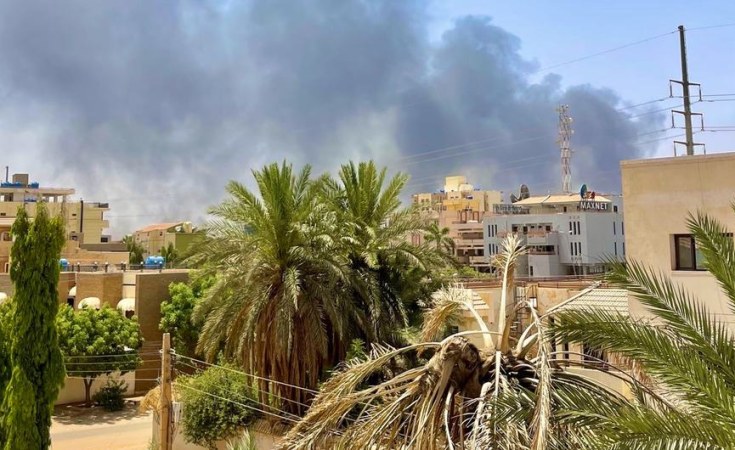New York — The latest report by the five-member UN Panel of Experts on the situation in Darfur, presented on January 13 but not officially released so far, covers the bloodshed experienced in the region since the start of the war between the Sudan Armed Forces (SAF) and the Rapid Support Forces (RSF) on April 15 last year, 'the worst violence since 2005'.
The experts have not been able to visit Sudan's war-stricken western region, but "held meetings and conducted telephone interview with a number of interlocutors", including representatives of Sudan's acting government, both warring parties, Darfuri rebel movements, civil society, including displaced people and refugees, and of UN agencies operating in the region.
The panel* did visit a number of neighbouring countries, in addition to European, African, and Arab countries, including the United Arab Emirates (UAE), accused of providing military support to the RSF.
The report, of which Radio Dabanga obtained a copy, states that the RSF, "in their increased military campaign in Darfur since August", the militia "used several types of heavy and/or sophisticated weapons which they were not using there before [..]. This new RSF firepower had a massive impact on the balance of forces on the ground, both in Darfur and in other regions".
The panel identified three main RSF arms supply routes "still active to date", via eastern Chad, southern Libya, and the Central African Republic (CAR. Fuel is reportedly being smuggled from South Sudan.
The UAE on December 21 officially denied being involved in the transportation of arms to the RSF via Chad.
The Panel of Experts also received information "that up to 50 companies associated with the RSF were directly or indirectly funding the force".
War crimes
The UN Panel of Experts state that the "disproportionate and indiscriminate attacks on civilians, mistreatment of civilians (torture, rape, killing, mass arrests and detentions), forced displacement, pillaging and destruction of critical civilian infrastructure, including humanitarian assets and attacks on personnel" constitute war crimes. Some may amount to crimes against humanity.
"According to intelligence sources, between 10,000 -15,000 people were killed in El Geneina [capital of West Darfur] alone."
The RSF offensives against the SAF in West and South Darfur received assistance from several Arab communities "who were recruited and armed for these operations" and were involved in attacks on individuals, burglaries, looting, and theft of vehicles.
"The attacks were planned, coordinated, and executed by the Rapid Support Forces (RSF) and their allied Arab militias," the report states.
The report concludes by recommending the UN Sanctions Committee "to remind the parties to the conflict in Darfur to adhere to their obligations under international humanitarian law, and "to remind the warring parties and those who facilitate the transfers of arms and military materiel to Darfur of their obligations to comply with the arms embargo measures as stipulated in paragraph 7 and 8 of resolution 1556 (2004)".
* The Panel of Experts on the Sudan was established by the UN Security Council in resolution 1591 (2005) on 29 March 2005. The Panel was originally comprised of four experts and was based in Addis Ababa, Ethiopia. Since 2012 the Panel has been home based. By resolution 1713 (2006) of 29 September 2006, the Council added a fifth expert to the Panel to enable it to better carry out its work. The Council has extended the Panel's mandate on a number of occasions, the last time in March last year, through March 12 this year.


